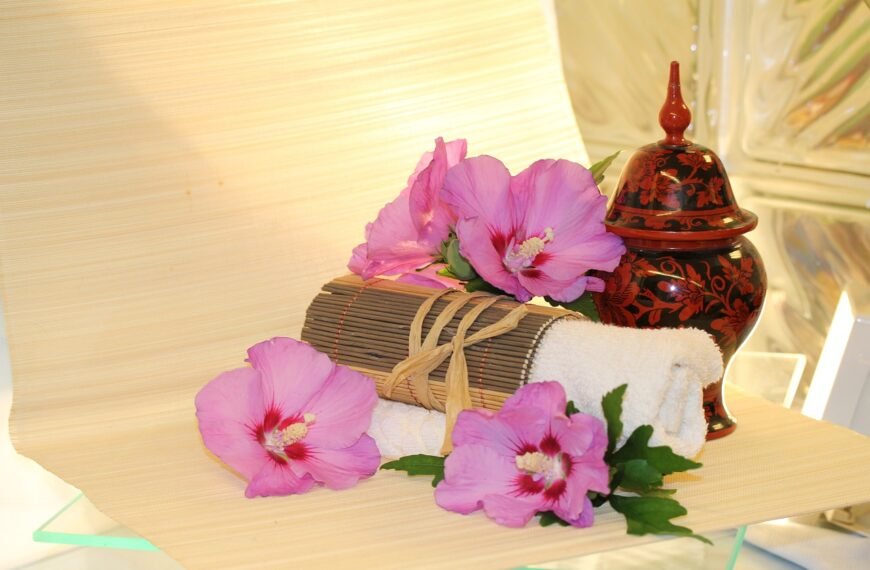Grab the wrong wax and your hair-removal session can go sideways fast—think burns, angry red bumps, or even stubborn breakouts. Pick the good stuff, and the whole process feels easy and leaves your skin super smooth.
Good news: figuring out the right body wax for you isn-t some endless guessing game. Whether you-re waxing your legs, brow, or bikini line, knowing what kind of skin you have basically tells you what formula to reach for.
In this short guide, we-ll walk you through the main skin types, point out the best and the worst wax options for each, and throw in a few quick tips to keep every session safe and comfortable. From warm chocolate blends to calming herbal strips, we-ve got the info you need for happy, hair-free skin.
Why Skin Type Matters When You Wax
The way your skin reacts to heat, pressure, and chemicals changes depending on whether it-s oily, dry, sensitive, or somewhere in between. Pop open a jar of sugar wax made for tough skin and rub it on fair, easily irritated skin, and you-ll see redness show up in minutes.
Each skin type wants a different mix of moisture, protection, and TLC when it comes time to pull out hairs. Sensitive areas feel better with calming stuff such as aloe, chamomile, or coconut oil, while oil-prone patches usually welcome a formula that lifts excess shine and leaves a matte finish behind. Menthol or tea tree in those stronger waxes can cool and fight germs at the same time.
The heat of the wax you use really matters. Some people can tolerate hotter wax than others, so matching the temp to your skin type keeps the session comfy and effective.
Identify Your Skin Type
Before you pick a wax, take a second to figure out your skin type. Knowing this helps you choose the right formula and temperature.
Dry Skin
Dry skin usually feels tight, especially right after you wash your face. You may see flaky patches, rough texture, or even tiny fine lines. Because dry skin has less natural oil, it tends to sting and get red when you wax.
Signs of dry skin:
– Feels tight or rough.
– Flakes or peels easily.
– Looks dull or ashy.
– Gets irritated easily.
Oily Skin
Oily skin pumps out extra sebum and often has a shiny look. Waxing usually irritates it less, yet all that oil can trap bacteria and lead to breakouts later.
Signs of oily skin:
– Shiny or greasy appearance.
– Large, visible pores.
– Prone to blackheads and acne.
– Makeup slides off easily.
Sensitive Skin
Sensitive skin reacts fast to just about any product. Even gentle treatments can burn, sting, or leave red patches. Because of that, this type needs the mildest waxes on the market.
Signs of Sensitive Skin
Sensitive skin tends to flare up easily. Here are a few clues it might be your skin type:
– Burns or stings with new products
– Turns red in just a few minutes
– Reacts to quite a few shampoos, creams, or soaps
– Feels itchy or irritated more often than not
Combination Skin
Combination skin mixes oily spots with dry patches. Most people find the T-zone-the forehead, nose, and chin-is shiny, while the cheeks feel normal or even rough.
Signs of Combination Skin:
– Oily across the T-zone
– Dry or normal cheeks that feel different
– Each area reacts in its own way to weather or products
– Stays changeable through winter heat or summer humidity
Normal Skin
Normal skin sits happily between oily and dry. It hardly fusses about a new cream and usually handles any wax you bring home.
Signs of Normal Skin:
– Steady moisture, neither slick nor tight
– Pores you can barely see
– Breakouts are rare and short-lived
– Shrugs off most products without drama
Best Wax Type for Each Skin Type
Now that you’ve figured out your skin, pairing it with the right wax is simple.
Dry Skin:- usually does best with waxes that slip in extra moisture. Search for blends with aloe, shea butter, or honey that keep the natural oils in and the skin from feeling too tight.
Dry Skin
If your skin often feels tight or looks flaky, it needs wax that hydrates while banishing unwanted hair. Skip hard formulas, because they yank too harshly and can leave you sore for days.
Top picks:
– Chocolate wax:- Rich cocoa butter and oils moisturize as they remove hair.
– Honey wax:- This natural humectant pulls moisture back into the skin.
– Aloe wax:- he soothing gel calms redness and adds quick hydration.
Oily Skin
On oily days, your skin can cope with stronger blends that tame shine without stripping moisture.
Top picks:
Clay wax:- The absorbent formula soaks up excess oil.
Tea-tree wax:- Its antibacterial kick helps keep breakouts at bay.
Hard wax:- This variety grips hair firmly but releases easily.
For sensitive bikini areas, hard wax often shines because it lowers the risk of ingrown hairs.
Normal Skin
If your skin neither over-dries nor shines heavily, most waxes suit you just fine. Choose based on how fast you want the job done and how much pampering you crave.
Top picks:
Sugar wax:- Gentle and made from kitchen staples.
Chocolate wax:- The luxe treat makes the process feel spa-like.
Soft wax:- Classic choice for big areas like legs.
Sensitive Skin
Tender skin needs special care to avoid stinging or rashes after waxing. Stick with ultra-gentle blends packed with calming plant extracts.
Top picks:
– **Calendula wax.** Famous for easing redness.
– **Oat milk wax.** Creamy and protective.
Always test a patch first, no matter which formula you choose. Keywords: sensitive skin, calendula wax, oat milk wax, calm waxing formula.
Best Wax Options
Aloe Vera Wax: Soothe irritation and calm red spots.
Chamomile Wax: Extra boost for stopping inflammation.
Herbal Wax Powder: Gentle mix for turmeric waxing on sensitive parts.
Always patch-test a tiny spot first if your skin is touchy. For delicate zones, a hair-removal powder is often kinder than classic wax.
Ingredients to Look For
A wax’s blend can make or break your experience. Match the formula to your skin type for the best results.
For Dry Skin:
Shea butter, coconut oil, vitamin E, glycerin.
For Oily Skin:
Tea tree oil, witch hazel, salicylic acid, clay.
For Sensitive Skin:
Aloe vera, chamomile, calendula, oat extract.
For Combination Skin:
Jojoba oil, hyaluronic acid, green tea, niacinamide.
Tips for Choosing the Right Wax
A few easy steps can save you from aches and bumps.
– Always read labels. Cross out anything you know stings.
– Patch-test 24 hours ahead. Dab a small wax blob in a hidden spot.
– Match the formula to the area. Face wax needs to be super gentle.
– Know your pain limit. Creams, strips, and hard wax hurt in different ways.
Check the Heat Setting
Always double-check the temperature the wax needs. You want to heat it enough to spread smoothly but not so hot that it burns your skin.
Choose Salon-Grade Wax
Stick with professional-grade waxes when you shop. They tend to melt evenly and are made with better ingredients that pull hair out cleanly.
Look for Herbal Blends
If you prefer a natural option, pick wax that adds turmeric, neem, or sandalwood. These herbs calm the skin and leave the beach-ready glow you want.=
Safe Waxing Practices Based on Skin Type
Every skin type reacts differently after a wax, so tailoring your care makes recovery smoother:
Dry skin:
– Moisturize right after waxing to lock in hydration.
– Pick gentle, fragrance-free lotions or balms.
– Skip hot showers for the first day.
– Dab on a thick cream every night.
Oily skin:
– Use a lightweight, oil-free face and body moisturizer.
– Apply a mild astringent to cut the chance of ingrown hairs.
– Exfoliate once or twice a week with a soft scrub.
– Keep an eye out for unexpected breakouts.
Sensitive skin:
– Slather on a cooling gel the moment you finish.
– Stay out of the sun for at least twenty-four hours.
– Stick to hypoallergenic wipes and cleansers only.
– Ice the spot gently if it turns pink or puffy.
Combination skin:
– Treat each zone according to its needs-right products for dry spots and different ones for oily parts.
– Keep note of how each area reacts over the week.
– Adjust your regimen as you learn what works.
Your Path to Perfect Waxing Results
Choosing the right wax is the first step to a clean, even finish. Whether you stick to your go-to wax powder or test a soothing herbal blend, knowing your skin will guide the choice.
And never skip the patch test, especially if your skin is easily irritated. For a first large-area wax or a busy bikini session, visiting an expert lets you view the correct tools and products for you.
Give yourself time to figure out what routine fits you best. Your skin will reward that patience with a smoother glow and way less irritation.







